As Russia carves tracks into the earth of newly occupied lands, Olya Sjirokostup has picked up threads of friendship to weave a new future for communities of what Soviet conquest was determined to destroy.
As a child, my parents would scare me by telling me that I was an unfathered baby. They would joke about having found me in the tundra, that chukchis[1] had forgotten me somewhere between the forest and the town and they took me in. My parents didn’t know the correct name of the indigenous people, or they made a mistake, or, perhaps, they preferred not to bother. Then, when my sister lost me in the street, I fell off the sleigh and lay there, in the snow, for a long time, staring into the black starry night above me. I was about five. I would be lost, and they would find me, always.
Born in the South of Russia, in the Rostov Region, on the Russia-Ukraine border, my father’s parents were Cossacks.[2] He spoke surzhyk – a pidgin version of Russian and Ukrainian. My mother was born somewhere near Moscow, her ancestors came from Central Russia, a whole lot of bloodlines all intertwined, which I wouldn’t know how to begin to untangle – it is characteristic of a post-Soviet space. They met in Kyiv, married early, entered military service, and moved to the Murmansk Region, away from their parents, they were placed in jobs and accommodation. Happy to live their independent lives together, the North seemed a temporary halt on a long journey ahead. My elder sister was born in Kyiv, but I was a child born in the North, at a military base.
Different branches of my family have one thing in common – they fought for, colonised, and guarded new territories of the empire. Generations moved and were scattered throughout the Soviet Union. Cossacks and Soviet officers never planted roots, my people are buried in different regions, their children grew up in different places. My grandparents’ house is sold. State-assigned housing was given up or sold again. Like autumn leaves, poor remnants of the family archive are scattered too.
The Russian Kola North has become the land of temporary workers. Thinking they would come only for a while to earn some money, they found themselves in unaccommodating conditions: six months of night, followed by another six months of sun that drives you crazy, wind that sweeps you off your feet, swarms of midges and gnats. They lived their isolated lives in small towns. Locals didn’t serve in these regiments, the practice of the time was to send the members of the indigenous communities to serve as far from their homes as possible. This way they would feel less connected to the land they were tasked to abuse.
They were not at all like settlers of the early 20th century, those northerners familiar with the territories they set off to exploit, convicts or dispossessed kulaks who came against their wills, or scientists led by scholarly passions.
Just like many other settlers before, they thought that they were traveling to an empty, nobody’s land.
“…It’s a border security zone. But really they resettled us to construct the Northern base, the underwater one [a military object, the submarine base; note by O.S.], that’s why they removed us from there. So they wouldn’t have to pay us that cash [reimbursements to the resettled; note by O.S.] It was around February [1940], the end of February – beginning of March. There are decrees, orders. They mention the Finnish border security zone. It relieved them of having to compensate for all the losses; for everything that people left behind (houses, cows, sheep, and all the homeware).
No one gave us anything. … Of course, we only had four hours to get our things. My mom had been crying over the cows for the whole four hours. … nothing can possibly be left there. The war swept everything away…”
– Zoya N, Verkhnetulomsky village. Second interview. January 15, 1998, from Evgenia Patsia’s personal archive.
As the military potential of the region grew, long-time residential lands and territories used by the locals for hunting and growing produce became “restricted areas”.
The official reason for the resettlement was the decision to unite reindeer farms due to the policy of strengthening collective farms at that time. The strategic importance of the Kola Peninsula had grown considerably by then, and the territories of the Varzino pogost (Á’rsjogk sijjt) became the location of the USSR armed forces facilities. Some people directly link their resettlement from the village of Varzino with the construction of military bases:
“A large base was organized in Gremikha, Ostrovny, and everyone was resettled in the settlement. Houses were burned down. They left their houses, left everything behind. A lot of utensils were left behind – samovars, hand-washing pots, dishes… The decision was taken by the regional executive committee.”
– Gutsol N., S. Vinogradova and A. Samorukova. Pereselennie Gruppy Kol’skih Saamov [Kola Saami Relocated Groups]. Apatity, Kola Science Center RAS, 2007.
Many men and women who came to serve in this peninsula were just lost young people left with a challenging garrison life in unusual circumstances. But those who came were mostly men, and as for women, they were usually displaced.
BREAK THE SILENCE, STOP LISTENING
Continue to blow up, upturn, dig up, move deeper.
They needed to break the silence, to stop listening to the steps of the lynx and songs of the river. This is why the jet planes would soar with thundering noises above our Khrushchev-era building, this is why, in Khibiny, in the bowels of the earth, nuclear charges would explode, this is why the women remembered how “the earth would wail”. But in time everybody got used to it.
Removed were those who had lived on these lands and who remembered how one could live a different life under different rules.
DISPLACE DIFFERENT BODIES, FIRST OF ALL FEMALE
Attract temporary workers to the “empty lands”.
They needed to tear bodies, first of all female ones, from their land, their native land, and to place them farther away.
Usually, military men married before leaving for service, in their places of origin or for studies. Or perhaps, they would find a wife in the very first town and then establish a home in a new isolated settlement with their wives.
They had to have children. Postpartum depression wasn’t something that they knew about. My mother told me a story of a young woman in our town who killed herself a few weeks after giving birth to her first-born child. Another woman killed her child accidentally. Where were my grandmothers and grandfathers? Who came before us there, far away, in the south or in the east? — another scrap, another void — how come we don’t have our parental home? The fabric of time tore down into scraps of the eternal present where only our family existed, my dad, my mom, and I.
STIR THE BODY, BREAK AWAY FROM THE LAND
Now stir – I didn’t see it but I remember my insides trembling – my mother used to say when describing the dry runs at the range.
LEAVE BEHIND
If this is not home, it is easy to leave it behind. No tears, no turning back. When we left the garrison for good, I never looked back. There would be other garrisons, other places.
The town I was born in, one of the many military garrisons scattered all over the former USSR territory, was considered the safest place on earth. Our mothers and fathers guarded us, we lived on a military base. What was there to be afraid of?
A few years before I was born, in 1982, nuclear tests were conducted in Novaya Zemlya. My mother remembers it. She would say, how lucky we are, it didn’t reach us. It didn’t affect me. I was a healthy and happy child. I would play with a son of my parents’ friends, who used to live there, in Novaya Zemlya, before coming to our hometown. I remember that the first summer he saw the grass he didn’t know how to play with it.
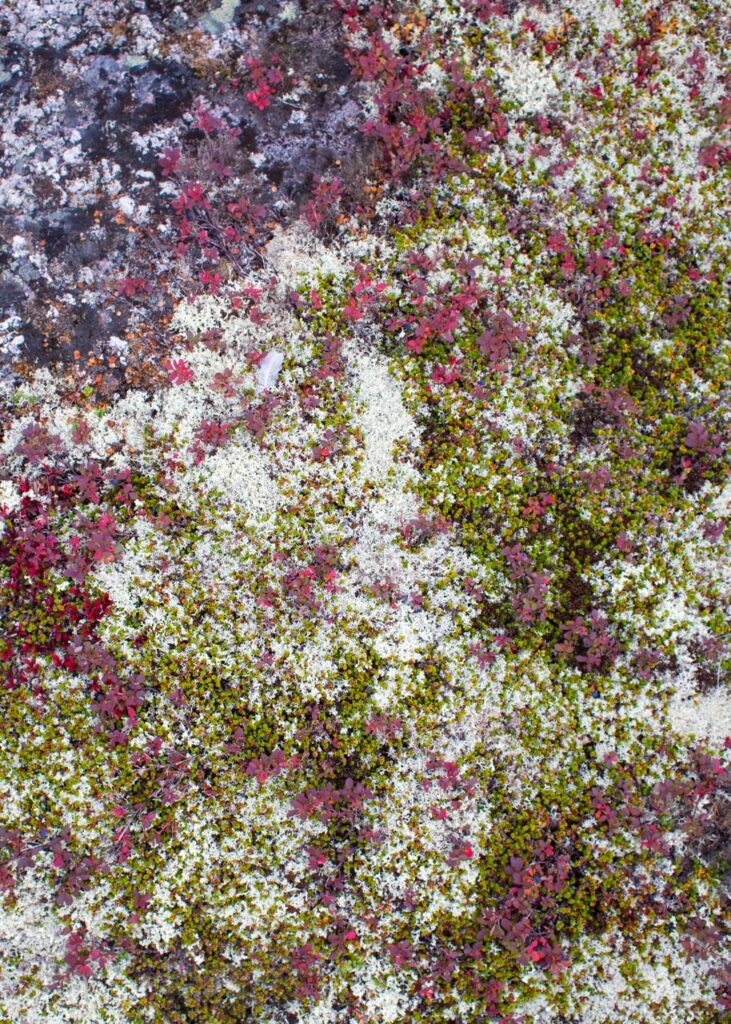
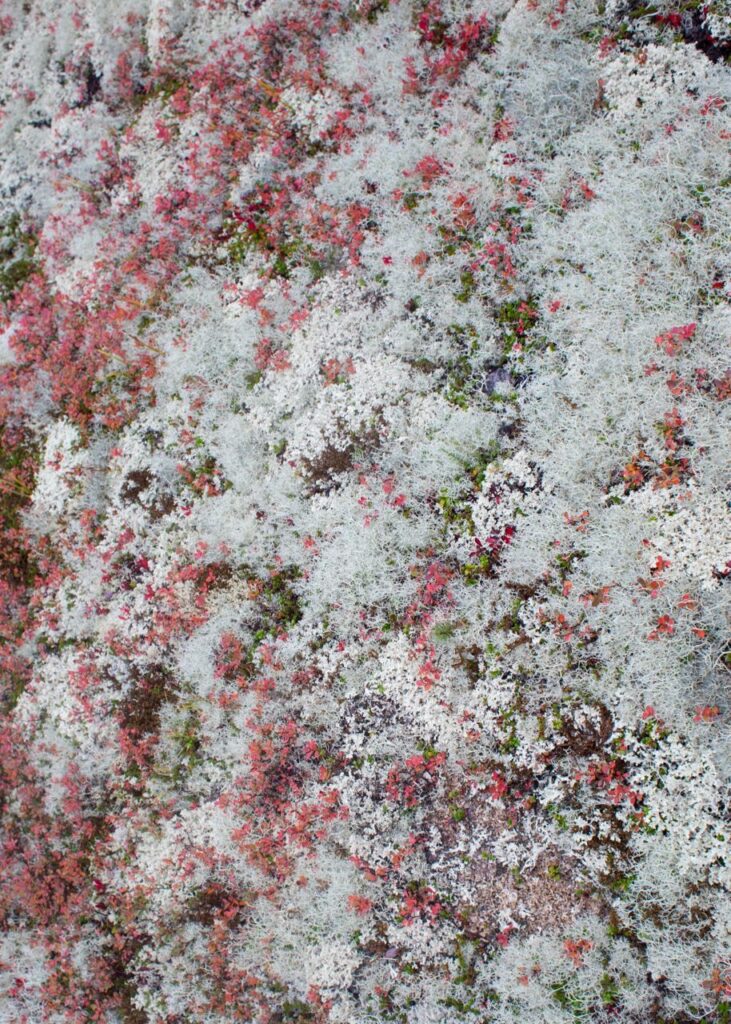
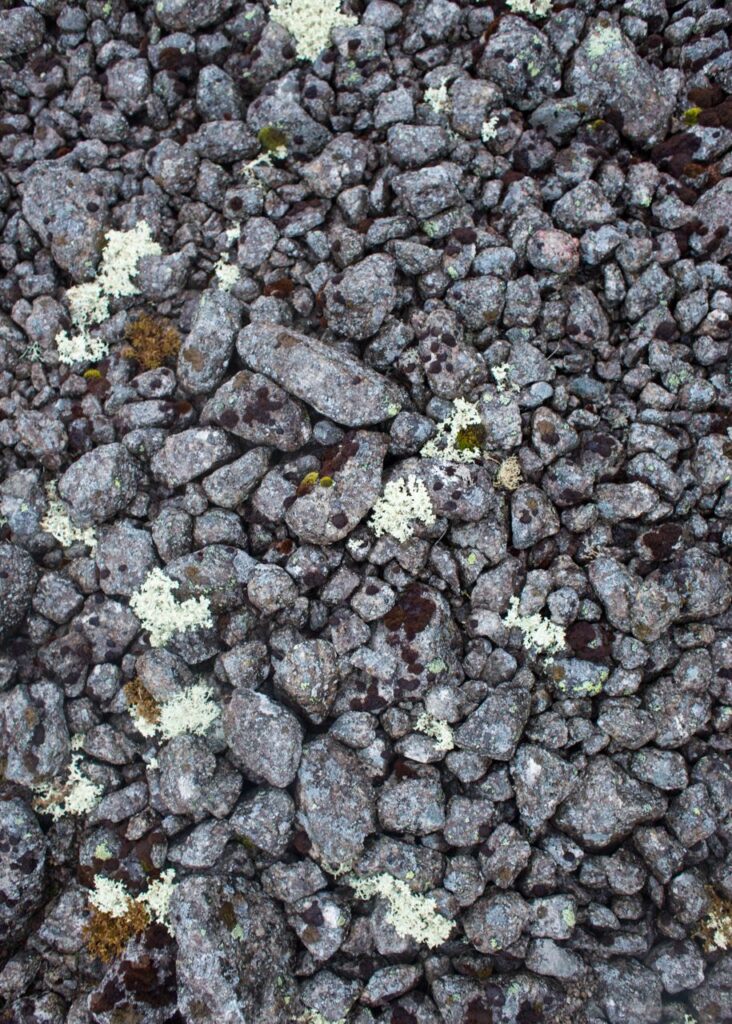
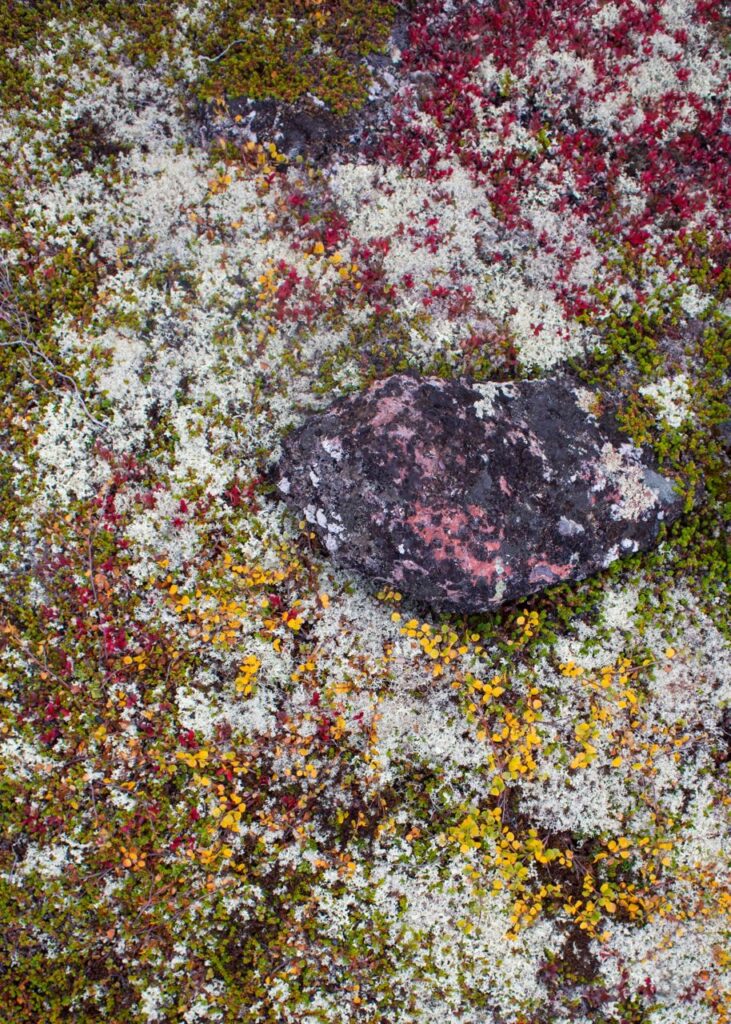
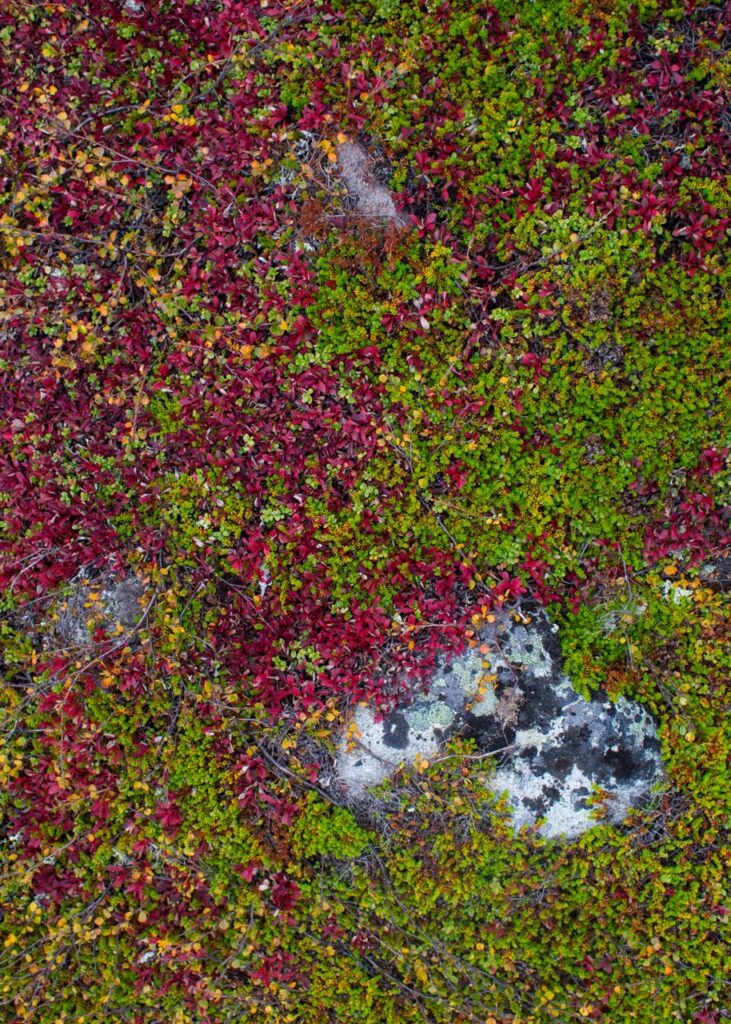
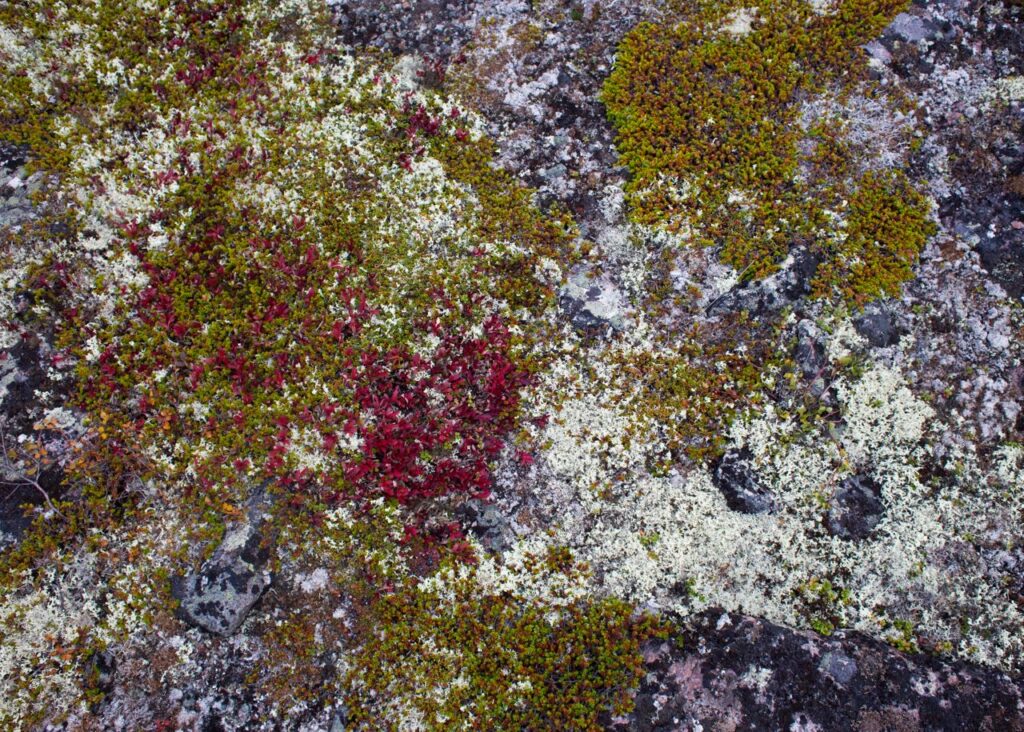
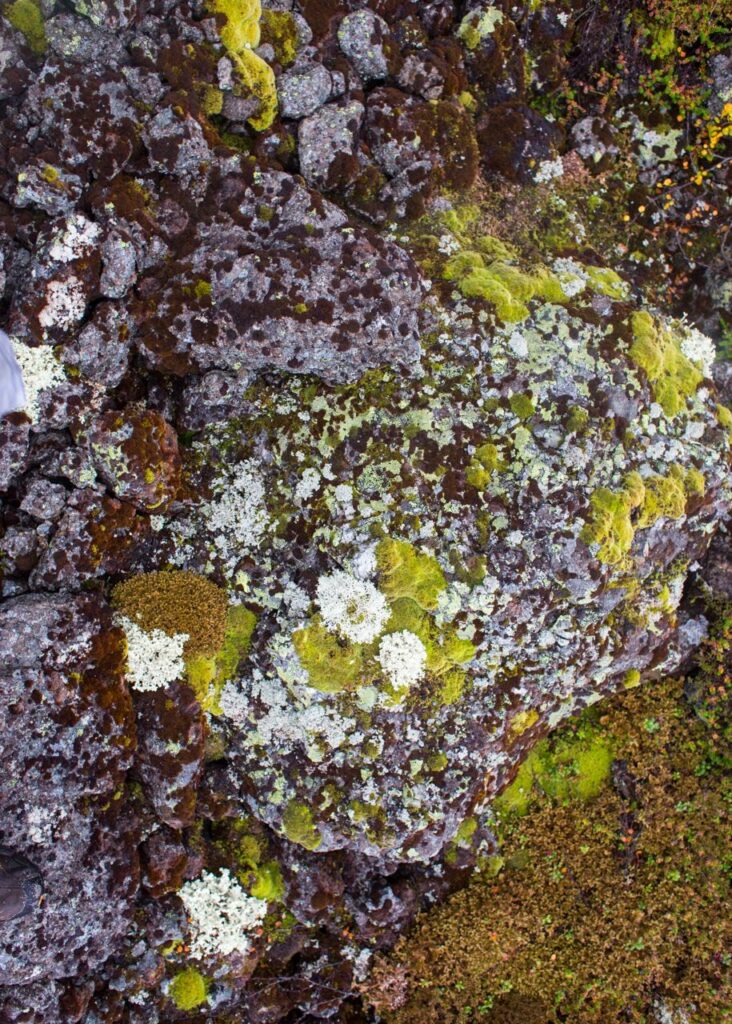
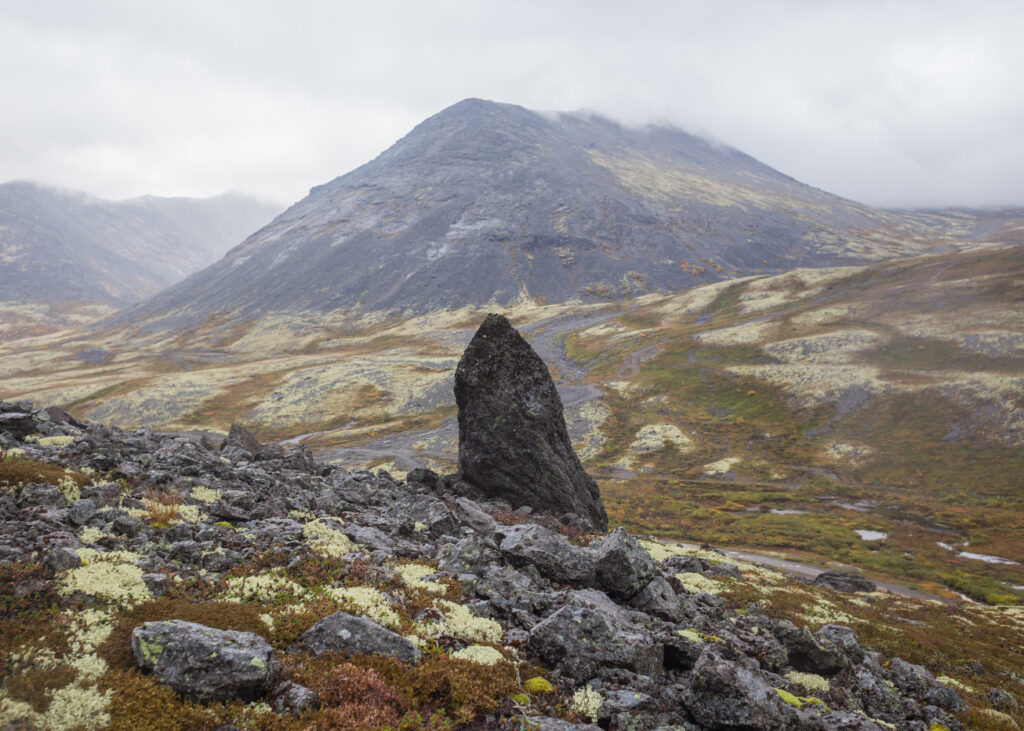
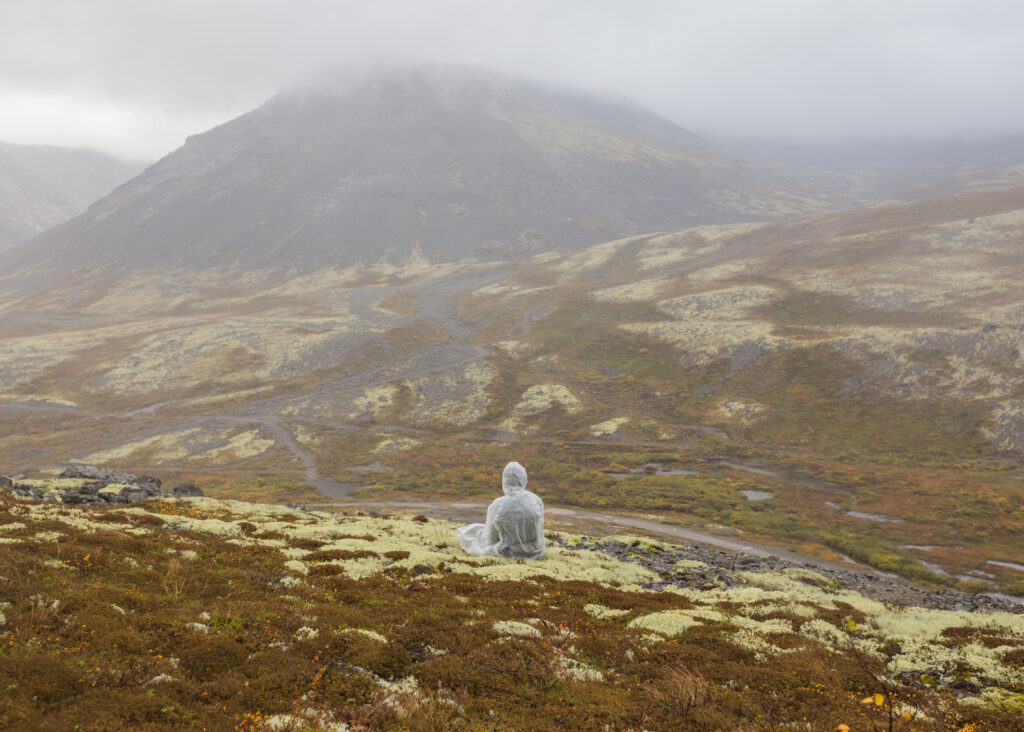
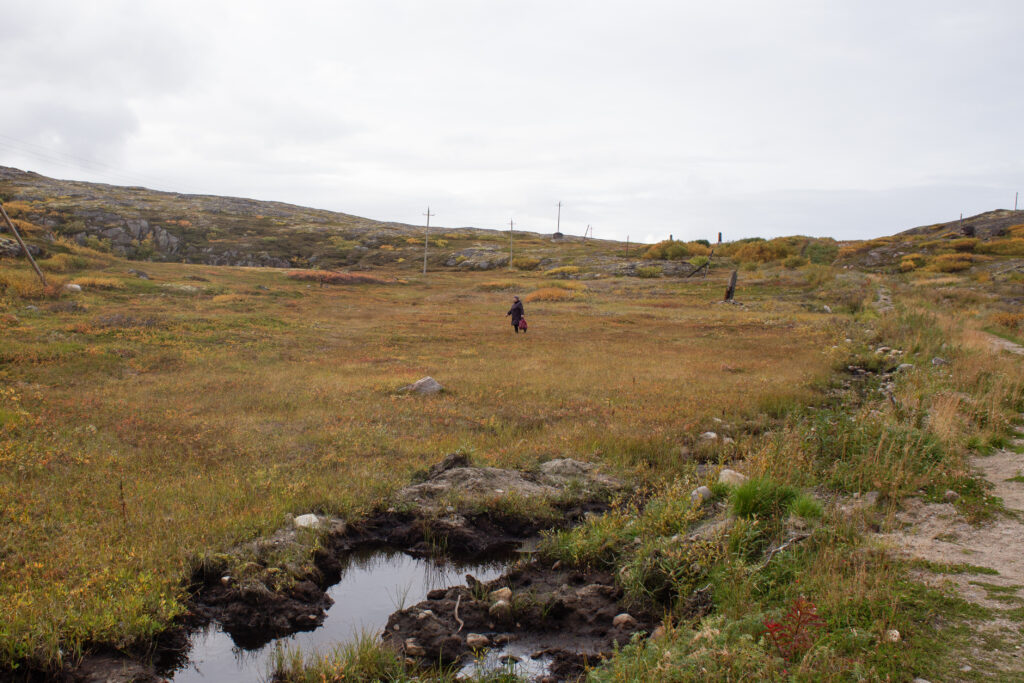
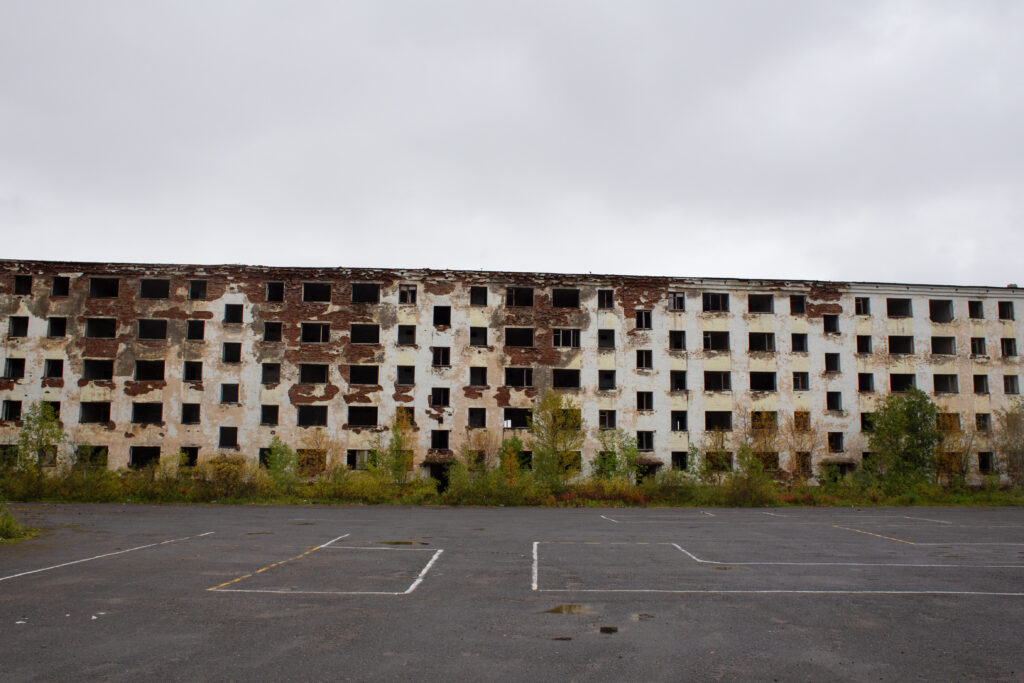
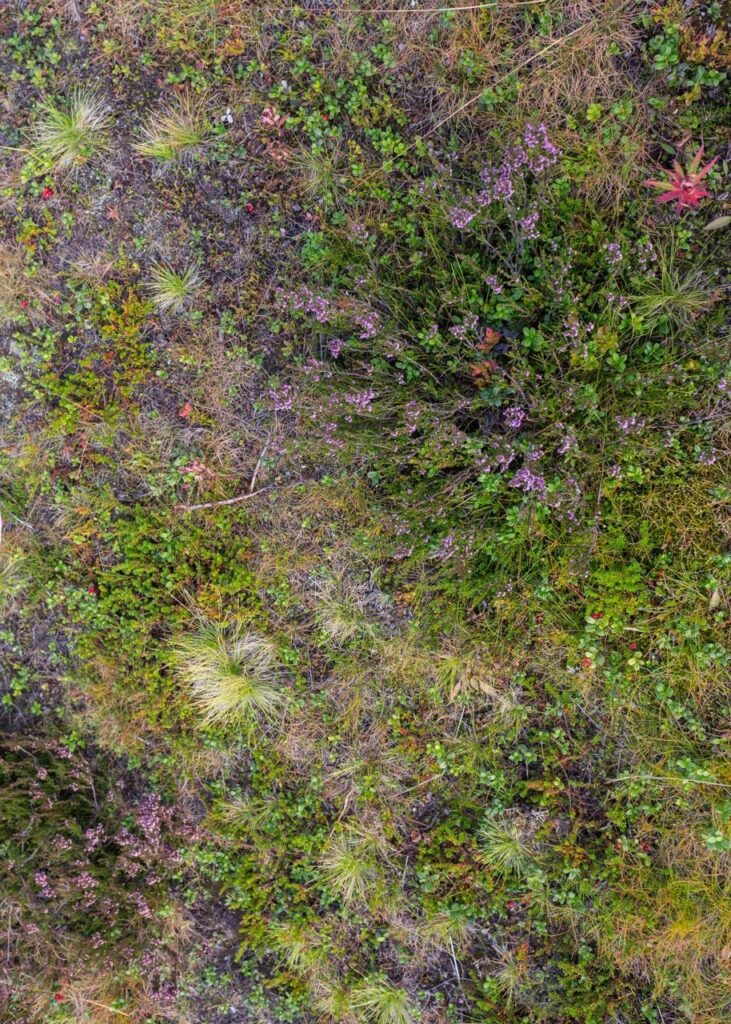
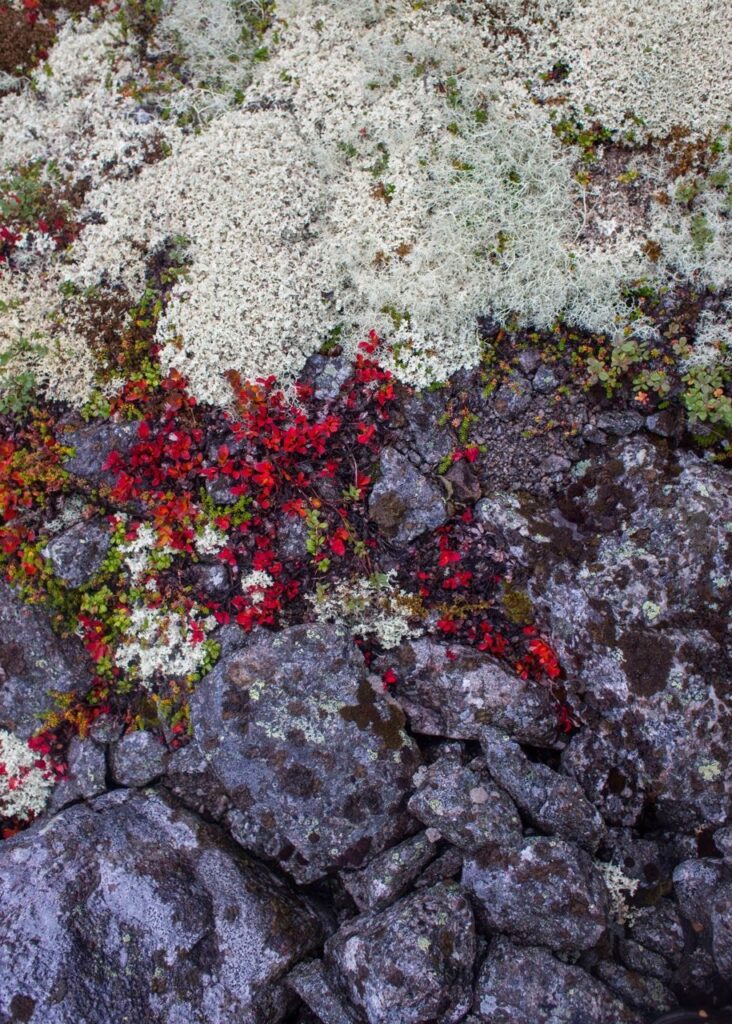
Do I have the right to process in my work the testimonies that I found? This experience is not mine, I cannot, I am not capable of connecting to it. Daughter of military men and women, daughter of colonizers, I am not local, I am not a Soviet citizen. I was born in the middle of collapse. I was taken to Moscow in 1997, as soon as the opportunity arose.
“We need to break away from the North,” my parents would constantly say when I was little.“We had the chance to break away from the North.” My mother used to tell me how they would kill for transfer papers, how they would beg and play dirty tricks on people. Their friends would say: “We devoted our best years to the North.” They would demonstrate their mouths full of golden teeth, and talk about how teeth fell out in the North. By the time he was forty my father had a whole set in gold. In Moscow, he replaced it with a more beautiful ceramic set. He was no longer embarrassed by his northern past, he smiled when remembering his service years, transformed in his mind into a nice memory instead of the harsh challenge it was.
Later I found out that you could keep your teeth if you ate local produce instead of taking allowances and foods sent from other regions. Once, my father received a package with a goose for borscht. We celebrated the occasion. I have never eaten venison. We gathered wild herbs, but we never preserved them. Everyone pretended, at all costs, that they lived where they had used to. I think that colonisers, my parents’ friends, got sick because they wouldn’t embrace the land that had accommodated them. They persevered in planting trees that would later be torn out by the wind. Why? I wondered, so the town looked “as it should”, as a town situated somewhere in another hemisphere?
All my life I remembered the smell of the soil and its smallest inhabitants, I remembered the touch of the moss. I felt that in the forest, behind the base, there was a lynx. Somehow, for me the North has never been a naked land, a testing ground. I felt physical pain at the sight of the tundra wounded by wheel tracks. I still feel it.
“I knew that I could be here at home while still being consciously alien”
I returned to the Kola twenty years later and met a woman there, Evgenia Patsia, she offered me words to describe what was and still is happening to me. She told me who I was. She was a storyteller. When I met her, I knew that I could be here at home while still being consciously alien to the land. She provided me with an example of how I could be “me”. Then I met other women, and they all did the same thing, we didn’t have to talk about it, I just had to observe, to notice small things. They walked silently, they did not bother earth and water, they looked you in the eye, and they smelled insincerity from afar. They were direct and they fought for justice, for the rivers of our land to be free from constraints, they fought against the construction of the military bases on our land, against the evisceration of the land.
Evgenia was one of them. She would tell me that these features were all Sámi traditions, that you could find them in their tales. Women like these should write tales – Evgenia would laugh and say that I got mixed up with an “old storyteller.” But these were not just stories, these were reflections of the way she and other women whom I met through her, some alive, some spoke to me through pages and pages of Evgenia’s interview transcripts – of how they saw life and truth. It’s just that today they sound idealistic, unrealistic, and just like fairy tales. They challenged the assumptions about what to eat, where to live, and how to behave. Only now do I understand that it was about balance, but in their own special words.
She believed in an affinity of souls and mindsets, and she built strong networks, threads of friendship and sincere passion that sewed together Sámi women, Komi women, Pomory women, and Soviet colonizers, just like herself, those who were not so sure about where they came from – originally Mingrelian, she was born in the Far East and lived her whole life in the Murmansk region. She knew something about solidarity. She happened to settle down in Apatity, in Luja’vvr sijjt (Lovozero), in Chavanga, in Krasnoshchelye… wherever people really needed her.
I would struggle to find my own land, my identity – an identity that was practical and convenient to live and to build a career with. But no matter how I tried, I couldn’t create an identity for myself and I will never be able to do it. I do not know who I am. Forever, I will be a child of colonisers forced to forget where their homeland was and responsible for taking it from others. But I will always be a successor of women who believed in the world without borders.
I know that we cannot change the past, but we can talk about it using all the languages that we are capable of preserving. We can discover language and give voice to those who haven’t been visible until now. The Kola North will no longer be a testing ground and source of raw materials fragmented by borders and checkpoints. Coercion, lack of freedom, and death will give way to life, and it will become an ecumene where we will find shelter from the catastrophes of the future. Where deers will wander freely, when and where they need. I truly believe that we will live to see this transformation.
Drawing by Ulyana Podkorytova
Photos by Olya Sjirokostup and Mikhail Fomkin
Translated by Liya Ebralidze
[1] Chukchis — indigenous minority. Self-designation — l’ygoravetlan, chauchu. Chukchis inhabit Chukotka and adjacent territories of northeastern Siberia. During the Soviet era, jokes about Chukchis of distinctly racist character ensured the popularity of the denomination. It was often associated with “poorly educated natives” and the North. Chukchis have no connection whatsoever with the Sámi, indigenous minority of the Kola peninsula.
[2] The Cossacks are a predominantly East Slavic Orthodox Christian people originating in Ukraine and southern Russia. They were formed by multiple linguistic and religious groups and historically were a semi-nomadic and semi-militarized people, who, while under the nominal suzerainty of various Eastern European states at the time, were allowed a great degree of self-governance in exchange for military service.
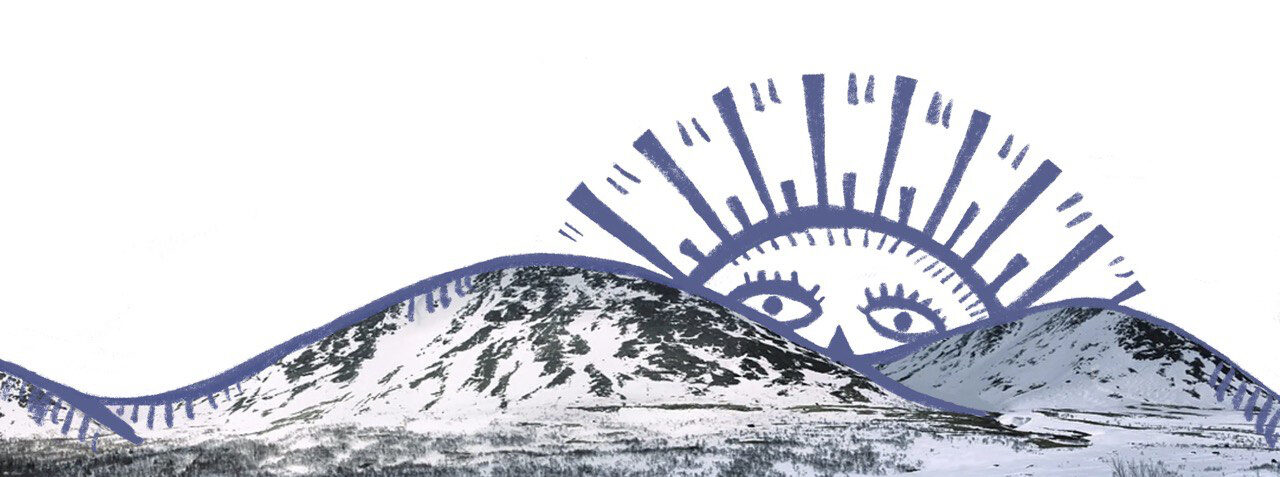

Sign up to our newsletter
For highlights from the latest issue, our archive and the blog, as well as news, events and exclusive promotions.